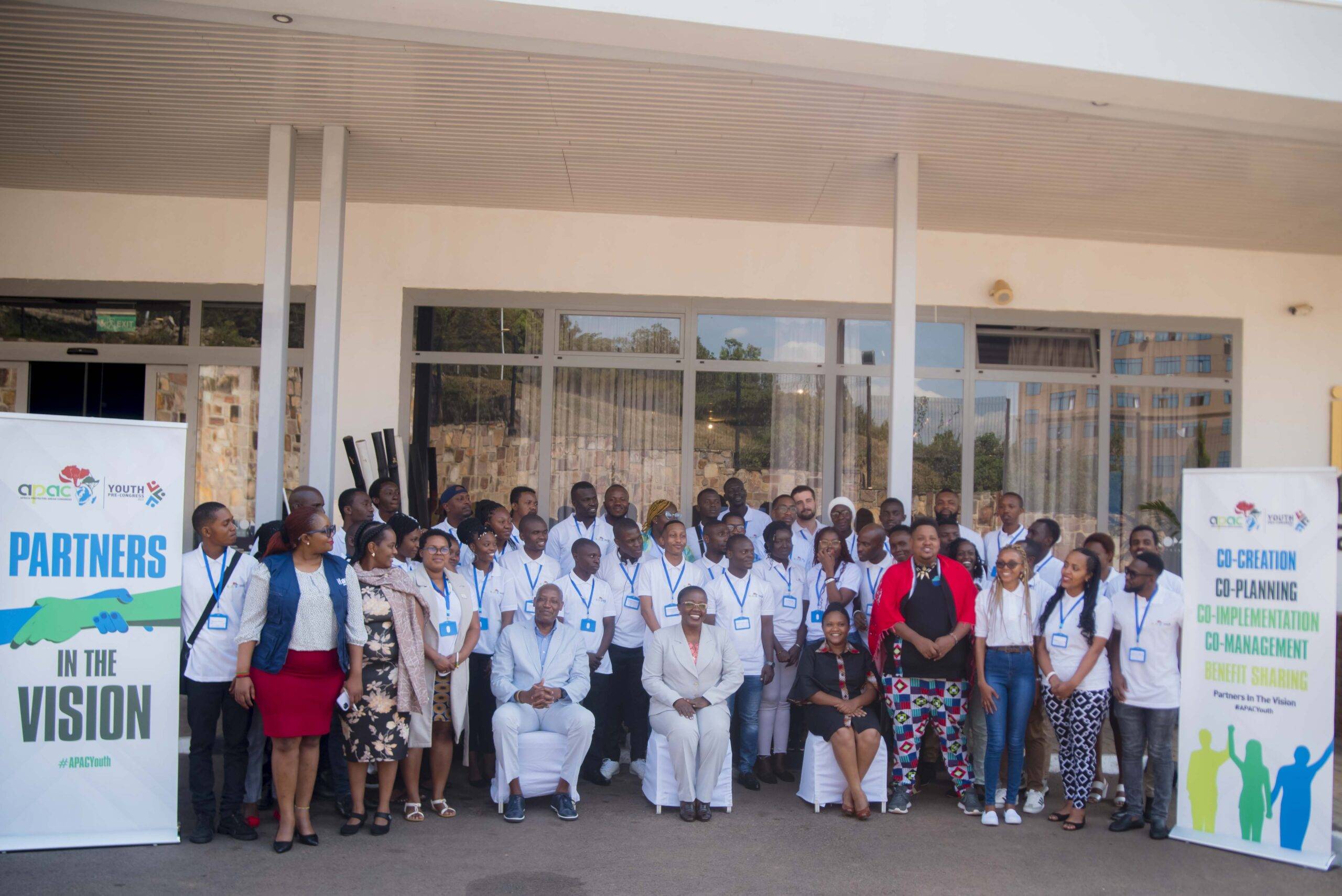Approximately 75% of Africa’s population is under the age of 35. Yet there are very few who are integrated in decision-making processes. It is to the youth, that Africa will bequeath its conservation heritage and therefore it is very important for them to become more active aby being a part of the much-needed solutions that enhance conservation in Africa.
As a pre-cursor to the main congress, 65 young African conservationists designed and convened a three-day pre-congress workshop to discuss how Africa’s youth can position themselves more strategically. The goal was to elevate their voices and prove that they have the capacity and own the vision for Africa by contributing to the to Kigali Call to Action, a vital guiding document that will shape the continent’s priorities in upcoming biodiversity and climate change conventions.
One of the key statements the youth embedded within The Kigali Call to Action, is the call for the identification, recognition and empowerment of all custodians of nature in Africa to lead the way in conserving Africa’s rich biodiversity through protected and conserved areas (PCAs), with the youth being one of the most vital custodians.
Throughout the Congress, there were strong commitments from government leaders, business leaders, civil society organizations and non-governmental bodies to work closely with the youth as they are a key asset to achieving African conservation targets.
The youth led discussions with strategic partners and leaders throughout the congress. One such meeting was an intergenerational dialogue between the youth leaders and the APAC patrons; Former Prime Minister of Ethiopia, H.E. Hailemariam Desalegn, and Former President of Niger H.E Mahamadou Issoufou. The discussion focused on how best to bridge the gap between the youth representatives, implementers and government leaders and institutions. The two political leaders applauded their deliberate efforts to change the status quo and pledged to use their influence to push for strategic and well-thought-out youth inclusion at all levels.
One of the key challenges the youth addressed was the lack of job opportunities even with the right credentials and education qualifications. African nations are now more than ever focused on green economic development, and there are tremendous initiatives for green economic growth across various African countries. Therefore, it is important that Africa creates a link between job creation and the green economy that is emerging to create green jobs. This calls for putting in place up-to-date curricula, research, and career advising and job placement to build the workforce that is needed to create a sustainable and inclusive future.
The APAC 2022 Youth Declaration has called on African governments to commit to engaging the APAC youth country representatives to discuss embedding conservation planning into government budget policies, land reform, spatial planning and education curricula across all levels and disciplines. Governments and non-state partners should collaborate to transform educational curricula so that nature conservation is integrated into all disciplines including the humanities, physical, biological and social sciences, technology and innovation to advance youth involvement in conservation.
Sustainable financing and encouragement of eco-friendly entrepreneurship is another key challenge faced by the African youth today. Though many have taken an initiative to start their own conservation projects to contribute to the well-being of their communities, these often come to a halt with lack of funding. Whilst financing still presents a major challenge across the conservation space, it is encouraging that leaders across the African continent realise that we need to create more sustainable mechanisms that can support financing to conservation in Africa.
The youth also welcomed the formation of A Pan Africa Conservation Trust (A-PACT) an ambitious African-led effort born out of the need to address the funding gap for Africa’s protected and conserved areas via an independent hybrid sustainable financing mechanism. The fact that the youth are being included in the development stages is a step forward in acknowledging that they bring much more to the table than what they were usually perceived as in the past. This move ensures that the solutions highlighted within the Youth Declaration are well articulated, and they can see what is feasible with the available resources that will not only be African-led, but primarily African-sourced.
In addition, the Kigali Call to Action calls for investment through direct grant-funding that focuses on those activities that enhance governance and management effectiveness, and that can catalyze the direct involvement of Indigenous Peoples, local communities, women and youth.
Undoubtedly, African youth are creative and solution oriented. They are unafraid to reinvent and leverage the new tools such as social media, which is a powerful mobilization tool and could be used as an education platform to disburse indigenous and local knowledge. The need to invest in the future generations by increasing uptake of the youth into conservation programs and projects to build early career professionals has never been so urgent like it is now. The commitment to push for meaningful youth inclusion in setting Africa’s conservation agenda must happen now so as to increase accountability. This starts from the creation of policy making processes, to program design, implementation and evaluation mechanisms. This is one of the many steps that most conservationists project will drive political will and consideration towards biodiversity conservation.
The overall key message from the youth in attendance was that they must be considered as ‘Partners in the Vision’. For sustainable development, youth inclusion means that they-as the biggest stakeholders in Africa- must be included in Co-Creation, Co-Planning, Co-Implementation, Co-Management, and Benefit Sharing. Moreover, as the Youth Declaration aptly states ‘The future cannot be crafted without the youth, when they shall live in the future without us’.
Read the Youth Declaration here
Read the Kigali Call to Action here


